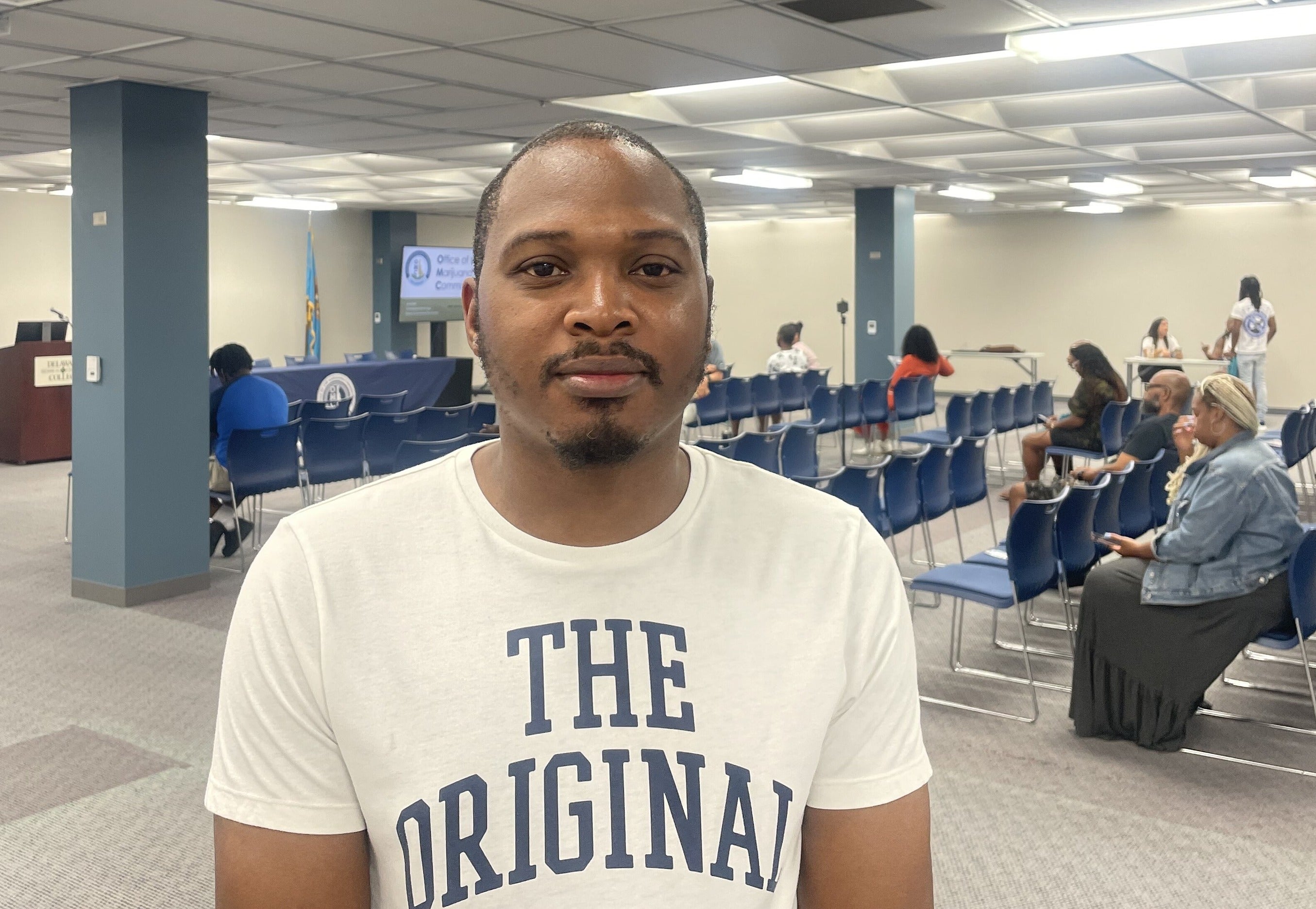‘Literally, 10–20 years ago, we were hiding it. Now it’s legal’
Even though costs are high and regulations stiff, Hyland said he expects up to 200 applicants for the 47 social equity licenses. To that end, several prospective applicants trekked to Delaware Tech, hungry for info about getting into the new industry.
Watson, who runs a cleaning business, said he’s been to cannabis industry events in other states while preparing to apply in Delaware.
“Actually, I’m interested in cultivation, manufacturing and retail,’’ Watson said. “I’m going for all three licenses.”
Watson said he qualifies as a social equity applicant because of a prior conviction and the fact that he lives in a northeast Wilmington neighborhood where police have frequently made marijuana and other drug arrests.
He’s eyeing sites in rural Kent County to grow weed and to manufacture gummies and other edible and prepackaged products such as tinctures and oils. For a retail storefront, he’s looking at “somewhere close to the highway’’ so it’s convenient for customers.
Watson’s also amazed that he’s in a position to deal weed with a state-issued license.
“Literally, 10–20 years ago, we were hiding it. Now it’s legal,’’ Watson said. “You can get it for your medicinal purposes and now it’s going to be recreational. It’s a bright future.”
Rall, who grew up in Dover and lives in New Castle County, got busted for possession in college but now has a CBD store that sells hemp-based cannabis products off Kirkwood Highway.

Rall said he was previously involved in the medical marijuana business in California, and now that recreational use is legal in his home state, he wants in.
“I do have retail experience, so in that sense, I might look better on paper for a retail application,’’ Rall said. “I feel like my heart’s more like I want to cultivate, but I’m willing just to get my foot in the door because I’ve been doing this for a long time.”
Lawmakers consider bill that would provide social equity grants
Rall said he’s been lining up investors but is also interested in a possible pool of a few million dollars in grants that could be available to help social equity licensees get started.
That money hinges on a bill that would let current medical marijuana licensees convert to recreational licenses for a $200,000 fee. The legislation passed in the state House this month and awaits action in the Senate. Rep. Ed Osienski, the House sponsor, says he’s confident it will pass before the General Assembly adjourns June 30.
While some critics say the measure would give medical licensees an unfair leg up in recreational sales, Hyland said it would also help recreational sales begin in the spring of 2025. That’s because medical licensees would be able to start growing recreational weed before other licensees. Otherwise, Hyland said, recreational retail sales might not start until sometime in 2026.
The Delaware Tech event also drew interested parties like Fairley, who said he’s looking to generate income to supplement his pay at the Port of Wilmington.

“I’m looking to get education, see what’s going on. What’s the positives? What’s the negatives?” Fairley said. “It’s a growing business. So you know, it’s always good to think about your future. You never know what can happen in life. You can always set yourself up for a safety net.”


Be the first to comment